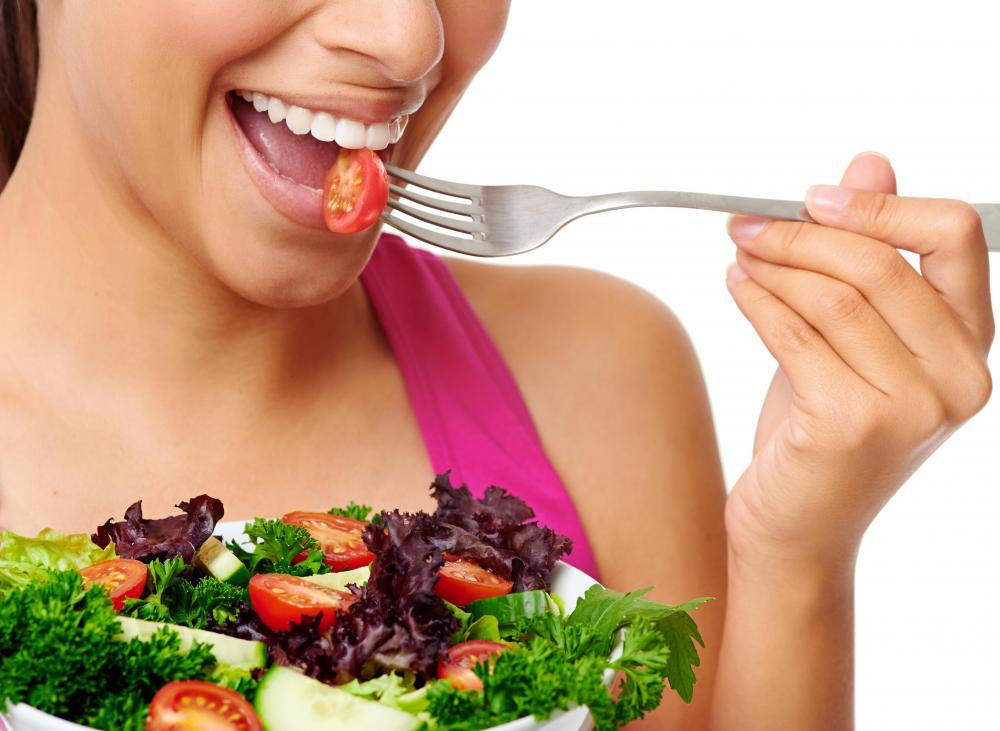At WiseGEEK, we're committed to delivering accurate, trustworthy information. Our expert-authored content is rigorously fact-checked and sourced from credible authorities. Discover how we uphold the highest standards in providing you with reliable knowledge.
What is Vitamin B12?
Vitamin B12, sometimes referred to as cobalamin, is one of the eight B vitamins. As a water soluble vitamin, the human body can not store it, so it should be consumed on a daily basis. Vitamin B12 assists the nervous system and boosts brain functioning. It is most commonly found in animal products such as shellfish, poultry, eggs and milk.
Vitamin B12 assists in forming healthy red blood cells. It is also essential for normal neurological activities. Even those who only suffer from a minor B12 deficiency may complain about depression, irritability, fatigue, loss of focus or a compromised memory. People might begin to notice an impaired sense of touch or smell, or a loss of appetite. Diets low in B12 often result in anemia. In extreme cases, a deficiency can cause psychosis or mania. When B12 becomes a regular part of a diet, people typically experience more energy and an improved memory.

The Institute of Medicine, which is a nonprofit health organization in the United States and an arm of the National Academies, recommends a Dietary Reference Intake of 2 to 3 micrograms (mcg) of B12 per day for adults. The exact amount can fluctuate depending on age or health condition. Children younger than four do not normally need more than 1 mcg of B12 a day. Pregnant women are recommended 2.6 mcg per day, while lactating women need 2.8 mcg. People older than 51 years of age, or those who practice a special diet such as vegetarianism or veganism should be especially aware of how much B12 they get on a regular basis.

Vitamin B12 can only be found naturally in the bacteria of animal products. The top sources for B12 include liver, shellfish, seafood, beef, lamb, cheese and eggs. It can be challenging to work B12 into some diets, especially for those who avoid meat or animal-based products. Nutritionists currently maintain there are no natural plant sources of B12. Lacto-ovo vegetarians -- those who eat dairy and eggs -- will still be able to satisfy their B12 requirement. Vegans, who eat an entirely plant-based diet, will need to invest in supplements or fortified foods. Breakfast cereals, energy bars or soy products are often fortified with B12 for those following a vegan diet.

Research has been conducted looking for natural plant-based sources of B12. There are several cultures in India and other parts of the world that live primarily vegan lifestyles without the signs of a B12 deficiency. It has been suggested that seaweeds, fermented soya, spirulina and other algae might contain a significant amount of B12. The easiest dietary plans to ensure enough vitamin B12 either include animal products, B12 supplements or fortified foods.
AS FEATURED ON:
AS FEATURED ON:















Discussion Comments
Funny how you first say that animal sources are the only way to get B12, and then go on to say that it is the easiest way. There is a huge difference there. Also, you clearly don't know where B12 comes from, nor do you know how we can survive on an animal-free diet.
B12 comes from a bacteria that is present in every living animal (including humans). In humans, it is present in the lower intestine. This means that we cannot get an ample supply of B12, because it so far down our digestive tract. In cows, it is located in one of the stomachs (don't remember which one) so that they can process the full amount of B12 generated by these bacteria.
Rabbits, to give you a vegan animal as example, get their B12 from eating their own poo. Well, the first time it goes through their system. If we humans didn't have hygienic standards, we would probably be getting enough B12 by just eating off the ground, or by not brushing our teeth, which would then be an ideal place for these bacteria.
To cap off, just blatantly suggesting that animal products are the only source is just false, and if you studied B12 a bit further you would have known this.
Post your comments